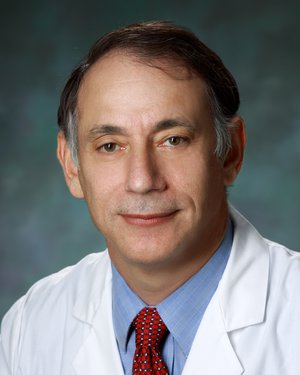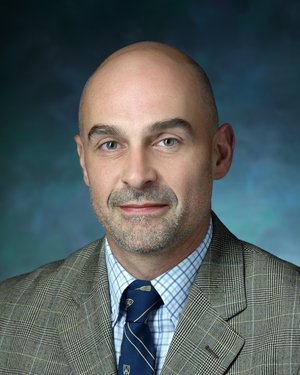Research Areas By Laboratory
Adamo Cardiac Immunology Lab
Principal Investigator: Luigi Adamo, M.D., Ph.D.
Over the last few decades, a growing body of evidence has shown that the immune system is intimately connected with cardiac development, function and adaptation to injury. However, there is still much to learn and currently there are no immunomodulatory treatments to prevent or treat heart dysfunction.
The Adamo Lab aims to study applied immunology in the context of cardiac function and dysfunction, to both elucidate fundamental properties of the immune systems and to develop novel therapeutic options for the rapidly growing number of patients living with heart disease.
Research Areas: heart disease, immunology, cardiac function and dysfunction

Adult Cardiac Catheterization Laboratory
Principal Investigator: Jon Resar, M.D.
Our group is interested in the evaluation of basic pathophysiology in patients undergoing cardiac procedures, development and evaluation of new therapeutic strategies, and improving patient selection and outcomes following interventional procedures.
Research Areas: cardiac catheterization, acute myocardial infarction

Cammarato Lab
Principal Investigator: Anthony Cammarato, Ph.D.
The Cammarato Lab is located in the Division of Cardiology in the Department of Medicine at the Johns Hopkins University School of Medicine. We are interested in basic mechanisms of striated muscle biology.
We employ an array of imaging techniques to study “structural physiology” of cardiac and skeletal muscle. Drosophila melanogaster, the fruit fly, expresses both forms of striated muscle and benefits greatly from powerful genetic tools. We investigate conserved myopathic (muscle disease) processes and perform hierarchical and integrative analysis of muscle function from the level of single molecules and macromolecular complexes through the level of the tissue itself.
Anthony Ross Cammarato, MD, is an assistant professor of medicine in the Cardiology Department. He studies the identification and manipulation of age- and mutation-dependent modifiers of cardiac function, hierarchical modeling and imaging of contractile machinery, integrative analysis of striated muscle performance and myopathic processes.
Research Areas: muscle development, genetics, myopathic processes, striated muscle biology, muscle function, myopathy, muscle physiology

Cardiac Surgery Research Lab
Principal Investigator: Jennifer Lawton, M.D.
Founded in 1942 by surgeon Alfred Blalock and surgical technician Vivien Thomas, the Cardiac Surgery Research Lab at The Johns Hopkins Hospital serves not only to spearhead discovery and innovation in cardiothoracic surgery, but also to train future leaders in the field. Active areas of investigation include the development of novel, nanoparticle-based therapeutics to mitigate acute lung injury, avoid neurological injury during cardiac surgery, and improve organ preservation during heart and lung transplantation. The lab is also active in a variety of clinical research projects aimed at improving outcomes for our patients.
Equally important, the lab plays a critical role in training residents for impactful careers in academic cardiothoracic surgery. Medical students, residents, and fellows receive hands-on simulation experiences to hone surgical skills outside of the operating room. The lab also serves as a training ground to develop research and investigation skills as trainees learn methods of advanced statistical analysis and academic writing. Special programs for undergraduates and medical students help develop their passion for cardiac surgery and surgical research, giving unique opportunities to young talent.
Research Areas: cardiac surgery, nanotechnology, cardiothoracic surgery, surgical models, heart transplant, lung transplant

Cardiology Bioengineering Laboratory
Principal Investigator: Henry Halperin, M.D.
The Cardiology Bioengineering Laboratory, located in the Johns Hopkins Hospital, focuses on the applications of advanced imaging techniques for arrhythmia management. The primary limitation of current fluoroscopy-guided techniques for ablation of cardiac arrhythmia is the inability to visualize soft tissues and 3-dimensional anatomic relationships.
Implementation of alternative advanced modalities has the potential to improve complex ablation procedures by guiding catheter placement, visualizing abnormal scar tissue, reducing procedural time devoted to mapping, and eliminating patient and operator exposure to radiation.
Active projects include:
• Physiological differences between isolated hearts in ventricular fibrillation and pulseless electrical activity
• Successful ablation sites in ischemic ventricular tachycardia in a porcine model and the correlation to magnetic resonance imaging (MRI)
• MRI-guided radiofrequency ablation of canine atrial fibrillation, and diagnosis and intervention for arrhythmias
• Physiological and metabolic effects of interruptions in chest compressions during cardiopulmonary resuscitation
Henry Halperin, MD, is co-director of the Johns Hopkins Imaging Institute of Excellence and a
professor of medicine, radiology and biomedical engineering. Menekhem M. Zviman, PhD is the laboratory manager.
Research Areas: magnetic resonance imaging, CPR models, cardiac mechanics, MRI-guided therapy, ischemic tachycardia, arrhythmia, cardiology, sudden cardiac death, cardiopulmonary resuscitation, computational modeling

Cardiovascular Precision Medicine Lab
Principal Investigator: Hanghang Wang, M.D., Ph.D.
With a focus on precision medicine, we are dedicated to creating personalized diagnostic and treatment modalities for cardiovascular diseases, integrating cutting-edge research into clinical practice.
Research Areas: cardiac surgery, computational biology, bioengineering

Cardiovascular Stem Cell Program
Principal Investigator: Chulan Kwon, Ph.D., M.S.
The research program aims to advance cardiovascular biology and medicine by focusing on pluripotent stem cell-based modeling and therapy and by nurturing future leaders in regenerative medicine.
Research Areas: cardiac, stem cells, cardiology, regenerative medicine

Center for Research on Cardiac Intermediate Filaments
Principal Investigator: Giulio Agnetti, Ph.D.
The CRCIF was established to foster collaborative efforts aimed at elucidating the role of intermediate filaments (IFs) in the heart. Intermediate filaments constitute a class of cytoskeletal proteins in metazoan cells, however, different from actin microfilaments and tubulin microtubules, their function in cardiac cells is poorly understood. Unique from the other two components of the cytoskeleton, IFs are formed by cell type-specific proteins. Desmin is the main component of the IFs in the cardiac myocytes. We measured the consistent induction of desmin post-translational modifications (PTMs, such as phosphorylation, etc.) in various clinical and experimental models of heart failure. Therefore, one of our main focuses is to determine the contribution of desmin PTMs to the development of heart failure in different animal and clinical models.
Active Projects:
• Quantification of desmin PTM-forms in different forms of heart failure at the peptide level using mass spectrometry
• Functional assessment of the role of desmin PTMs in heart failure development using single site mutagenesis and biophysical methods
• Molecular characterization of desmin preamyloid oligomers using mass spectrometry, in vitro and in vivo imaging
• Assessment of the diagnostic and pharmacological value of desmin PTMs in heart failure development
Research Areas: heart failure, intermediate filaments

Chulan Kwon Laboratory
Principal Investigator: Chulan Kwon, Ph.D., M.S.
The C. Kwon Lab studies the cellular and molecular mechanisms governing heart generation and regeneration.
The limited regenerative capacity of the heart is a major factor in morbidity and mortality rates: Heart malformation is the most frequent form of human birth defects, and cardiovascular disease is the leading cause of death worldwide. Cardiovascular progenitor cells hold tremendous therapeutic potential due to their unique ability to expand and differentiate into various heart cell types.
Our laboratory seeks to understand the fundamental biology and regenerative potential of multi-potent cardiac progenitor cells – building blocks used to form the heart during fetal development — by deciphering the molecular and cellular mechanisms that control their induction, maintenance, and differentiation. We are also interested in elucidating the maturation event of heart muscle cells, an essential process to generate adult cardiomyocytes, which occurs after terminal differentiation of the progenitor cells. We believe this knowledge will contribute to our understanding of congenital and adult heart disease and be instrumental for stem cell-based heart regeneration.
We have developed several novel approaches to deconstruct the mechanisms, including the use of animal models and pluripotent stem cell systems. We expect this knowledge will help us better understand heart disease and will be instrumental for stem-cell-based disease modeling and interventions for of heart repair.
Dr. Chulan Kwon is an assistant professor of medicine at the Johns Hopkins University Heart and Vascular Institute.
Research Areas: stem cells, cell biology, heart regeneration, congenital heart disease, cardiovascular, molecular biology, cardiac cells

Foster Lab
Principal Investigator: D. Brian Foster, Ph.D., M.Sc.
The Foster Lab uses the tools of protein biochemistry and proteomics to tackle fundamental problems in the fields of cardiac preconditioning and heart failure. Protein networks are perturbed in heart disease in a manner that correlates only weakly with changes in mRNA transcripts. Moreover, proteomic techniques afford the systematic assessment of post-translational modifications that regulate the activity of proteins responsible for every aspect of heart function from electrical excitation to contraction and metabolism. Understanding the status of protein networks in the diseased state is, therefore, key to discovering new therapies.
D. Brian Foster, Ph.D., is an assistant professor of medicine in the division of cardiology, and serves as Director of the Laboratory of Cardiovascular Biochemistry at the Johns Hopkins University School of Medicine.
Research Areas: proteomics, protein biochemistry, heart failure, cardiology, cardiac preconditioning, cardiomyopathy

Gabelli Lab
Principal Investigator: Sandra Gabelli
The Gabelli lab research is focused on structural, mechanistic and functional aspects of enzyme activation that play a role in the biology of human diseases such as cancer, parasitic infection and cardiovascular disease. Their work seeks to:
1. Understand how molecular events at the recognition level coordinate and trigger events in the cells
2. Translate structural and mechanistic information on protein:protein interactions at the cytoplasmic level into preventive and therapeutic treatment for human disease.
To achieve a comprehensive understanding, they are studying cytoplasmic protein-protein interactions involved in regulation of pathways such as PI3K and Sodium Voltage gated channels. Their research integrates structural biology and chemical biology and it is focused on drug discovery for targeted therapies.
Research Areas: biochemistry, chemical biology, cell biology, structural biology, proteomics, cancer, diarrhea, diabetes, drugs, cellular signaling, inflammation, pharmacology

Gilotra Lab
Principal Investigator: Nisha Gilotra, M.D.
The main focus of Dr. Gilotra's research is understanding the pathophysiology and outcomes in inflammatory cardiomyopathies including myocarditis and sarcoidosis, as well as improvement of heart failure patient care through noninvasive hemodynamic monitoring and studying novel strategies to reduce heart failure hospitalizations. Additional investigations involve clinical research in advanced heart failure therapies including heart transplantation and mechanical circulatory support. Dr. Gilotra is the site Principal Investigator for the NIH/NHLBI funded Heart Failure Network trials.
Research Areas: heart failure, cardiology, cardiomyopathy

Hsu Lab
Principal Investigator: Steven Hsu, M.D.
Our work is focused on the translational human in vivo and ex vivo assessments of right ventricular (RV) function in the setting of pulmonary hypertension.
Among patients with group I pulmonary arterial hypertension PAH, those with systemic-sclerosis-associated PAH (SSc-PAH) have a particularly poor prognosis and less optimal response to PAH-guided therapy. Using in vivo pressure-volume catheterization of the right ventricle, we have uncovered key deficiencies in resting and reserve RV function in the SSc-PAH group when compared to idiopathic PAH (IPAH) patients. These studies have uncovered key discoveries with regards to right ventricular-pulmonary arterial (RV-PA) coupling in PAH. In the lab, by studying myofilament function from RV endomyocardial biopsies from these same patients, we have uncovered corresponding deficiencies in myofilament contractility and calcium sensitivity as well. Ongoing work is directed towards determining the underlying mechanism of these findings, which will hopefully lead to therapeutic applications for RV failure in SSc-PAH.
Further endeavors are directed towards studying RV failure in other populations, including exercise-induced PH, PH secondary to left-heart disease, and the left ventricular assist device population.
Research Areas: pulmonary hypertension, exercise-induced pulmonary hypertension

Interventional Cardiology Research Group
Principal Investigator: Jon Resar, M.D.
Our group is interested in a broad array of clinical and translational investigations spanning the evaluation of basic pathophysiology in patients undergoing cardiac procedures, development and evaluation of new therapeutic strategies, and improving patient selection and outcomes following interventional procedures. We are comprised of a core group of faculty and dedicated research nurses as well as fellows, residents, and students. Projects range from investigator-initiated single-center observational studies to industry-sponsored multicenter phase 3 randomized controlled trials. We have established a database of all patients who have undergone TAVR at Johns Hopkins, which is providing the basis for several retrospective analyses and will serve as the foundation for future studies of TAVR. We are also engaged in collaborative projects with other groups from the Department of Medicine and other Departments including Cardiac Surgery, Anesthesiology, Radiology, Psychiatry, and Biomedical Engineering. Members of our group are actively involved with the Johns Hopkins Center for Bioengineering Innovation and Design (CBID) in the development of novel minimally-invasive cardiovascular devices.
Research Areas: coronary CT angiography, PCI, bioprosthetic leaflet thrombosis, myocardial regeneration, TAVR

Johnston-Hwang Lab
Principal Investigator: Peter Johnston, M.D.
Development and optimization of stem cell and regenerative therapies for heart failure and myocardial infarction.
CardiAMP Heart Failure Trial, Implantable Bioreactor for Prevention of Adverse Remodeling after Myocardial Infarction
Research Areas: heart failure, myocardial infarction

Kass Lab
Principal Investigator: David Kass, M.D.
Basic science investigations span an array of inquiries, such as understanding the basic mechanisms underlying cardiac dyssynchrony and resynchronization in the failing heart, and beneficial influences of nitric oxide/cGMP/protein kinase G and cGMP-targeted phosphdiesterase signaling cascades on cardiac maladaptive stress remodeling. Recently, the latter has particularly focused on the role of phosphodiesterase type 5 and its pharmacologic inhibitors (e.g. sildenafi, Viagra®), on myocyte signaling cascades modulated by protein kinase G, and on the nitric oxide synthase dysregulation coupled with oxidant stress.
The lab also conducts clinical research and is presently exploring new treatments for heart failure with a preserved ejection fraction, studying ventricular-arterial interaction and its role in adverse heart-vessel coupling in left heart failure and pulmonary hypertension, and testing new drug, device, and cell therapies for heart disease. A major theme has been with the use of advanced non-invasive and invasive catheterization-based methods to assess cardiac mechanics in patients.asive and invasive catheterization-based methods to assess cardiac mechanics in patients.
David Kass, MD, is currently the Director at the Johns Hopkins Center for Molecular Cardiobiology and a professor in cellular and molecular medicine.
Research Areas: pulmonary hypertension, heart disease, cardiac hypertrophy, heart failure, cardiology

Lima Lab
Principal Investigator: Joao Lima, M.D., M.B.A.
The Lima Lab’s research is concentrated on the development and application of imaging and technology to address scientific and clinical problems involving the heart and vascular system.
Specifically, our research is focused on developing magnetic resonance imaging (MRI) contrast techniques to investigate microvascular function in patients and experimental animals with myocardial infarction; functional reserve secondary to dobutamine stimulation and myocardial viability assessed by sodium imaging; and cardiac MRI and computed tomography (CT) program development of techniques to characterize atherosclerosis in humans with cardiovascular or cerebrovascular disease.
Current projects include:
• The Coronary Artery Risk Development in Young Adults (CARDIA) Study
• The MESA (Multi-Ethnic Study of Atherosclerosis) Study
• The Coronary Artery Evaluation using 64-row Multidetector Computed Tomography Angiography (CORE64) Study
Joao Lima, MD, is a professor of medicine, radiology and epidemiology at the Johns Hopkins School of Medicine.
Research Areas: magnetic resonance, cerebrovascular, imaging, cardiovascular, cardiology, atherosclerosis, computed tomography, vascular, myocardial infarction

Lowenstein Lab
Principal Investigator: Charles J. Lowenstein, M.D.
Venous thromboembolism is a major cause of morbidity and mortality. Thrombosis can be caused by acquired or inherited factors, but the genetic contribution to thrombosis is not well defined. Genome wide association studies have recently uncovered new pathways that cause thrombotic disease in humans.
The Lowenstein Lab uses human genetics to discover and characterize novel genes that regulate thrombosis and hemostasis. We collaborate with genetic epidemiologists who perform GWAS to identify genetic variants linked to vascular inflammation or thrombosis. We then characterize genetic loci linked to vascular inflammation or thrombosis. These approaches have revealed new pathways in endothelial cells and platelets that contribute to thrombosis and may lead to novel therapies to prevent abnormal bleeding and thrombosis.
Current Projects:
- Genetic causes of venous thromboembolism
- Genetic causes of abnormal endothelial activation
- Epigenetic regulation of coagulation factor production
Research Areas: vascular inflammation, thrombosis, hemostasis

Mukherjee Lab
Principal Investigator: Monica Mukherjee, M.D., M.P.H.
The Mukjerjee lab focuses on Right Ventricular Dysfunction in Systemic Sclerosis Utilizing Speckle-Based Strain and Early Detection of Occult Right Ventricular Dysfunction in Systemic Sclerosis.
Active Projects:
-Echocardiography
-Speckle Tracking Echocardiography
Research Areas: speckle-based strain, right ventricular dysfunction, echocardiography, speckle tracking echocardiography

O'Rourke Lab
Principal Investigator: Brian O'Rourke, Ph.D.
The O’Rourke Lab uses an integrated approach to study the biophysics and physiology of cardiac cells in normal and diseased states.
Research in our lab has incorporated mitochondrial energetics, Ca2+ dynamics, and electrophysiology to provide tools for studying how defective function of one component of the cell can lead to catastrophic effects on whole cell and whole organ function. By understanding the links between Ca2+, electrical excitability and energy production, we hope to understand the cellular basis of cardiac arrhythmias, ischemia-reperfusion injury, and sudden death.
We use state-of-the-art techniques, including single-channel and whole-cell patch clamp, microfluorimetry, conventional and two-photon fluorescence imaging, and molecular biology to study the structure and function of single proteins to the intact muscle. Experimental results are compared with simulations of computational models in order to understand the findings in the context of the system as a whole.
Ongoing studies in our lab are focused on identifying the specific molecular targets modified by oxidative or ischemic stress and how they affect mitochondrial and whole heart function.
The motivation for all of the work is to understand
• how the molecular details of the heart cell work together to maintain function and
• how the synchronization of the parts can go wrong
Rational strategies can then be devised to correct dysfunction during the progression of disease through a comprehensive understanding of basic mechanisms.
Brian O’Rourke, PhD, is a professor in the Division of Cardiology and Vice Chair of Basic and Translational Research, Department of Medicine, at the Johns Hopkins University.
Research Areas: biophysics, ischemia-reperfusion injury, imaging, electrophysiology, cardiovascular, arrhythmia, physiology, sudden cardiac death, molecular biology, cardiac cells

Post Lab
Principal Investigator: Wendy Post, M.D., M.S.
The Post Lab is involved in the Multi-Ethnic Study of Atherosclerosis (MESA), a collaborative study of the characteristics of subclinical cardiovascular disease (that is, disease detected non-invasively before it has produced clinical signs and symptoms) and the risk factors that predict progression to clinically overt cardiovascular disease or progression of the subclinical disease.
As MESA researchers, we study a diverse, population-based sample of 6,814 asymptomatic men and women aged 45-84. Approximately 38 percent of the recruited participants are white, 28 percent African-American, 22 percent Hispanic, and 12 percent Asian, predominantly of Chinese descent.
Participants were recruited from six field centers across the United States, including Johns Hopkins University. Each participant received an extensive physical exam to determine a number of conditions, including coronary calcification, ventricular mass and function, flow-mediated endothelial vasodilation, standard coronary risk factors, sociodemographic factors, lifestyle factors, and psychosocial factors.
Selected repetition of subclinical disease measures and risk factors at follow-up visits have allowed study of the progression of disease. Participants are being followed for identification and characterization of cardiovascular disease events, including acute myocardial infarction and other forms of coronary heart disease (CHD), stroke, and congestive heart failure; for cardiovascular disease interventions; and for mortality.
Wendy S. Post, MD, MS, is an associate faculty, Welch Center for Prevention, Epidemiology, and Clinical Research, Johns Hopkins University, and a professor of medicine.
Research Areas: coronary artery disease, cardiovascular, ethnicity, pathogenesis, atherosclerosis, sudden cardiac death

Ratchford Lab
Principal Investigator: Elizabeth Ratchford, M.D.
Prospective registry looking at cardiovascular risk assessment and risk reduction among firefighters.
Research Areas: cardiovascular disease prevention

Seth Martin Lab
Principal Investigator: Seth Martin, M.D., M.H.S.
Dr. Martin's research is focused on rapid generation of new knowledge through clinical studies that can be brought back to the bedside to directly inform the care of patients with advanced lipid disorders and those in need of state-of-the-art comprehensive CV prevention. Members of his lab commit to complete ownership of their project, unwavering pursuit of excellence, and thrive on multidisciplinary teamwork. Active projects include the Very Large Database of Lipids, CASCADE FH Registry, MiCORE (Myocardial infarction, COmbined device, Recovery Enhancement), Google Health Search Trial, and mActive-Smoke.
For more information, please visit the Ciccarone Center.
Research Areas: heart disease, immunology, cardiac function and dysfunction

The Atlantic Cardiovascular Patient Outcomes Research Team - Atlantic C-PORT
Principal Investigator: Thomas Aversano, M.D.
Our research is centered on the safety, efficacy and outcomes of PCI performed at hospitals without on-site cardiac surgery.
Active projects:
C-PORT Randomized Studies and Registries; New Jersey Angioplasty Demonstration Project; InCar-decision support tools for performance of PCI at hospitals without on-site cardiac surgery.
For more information please visit Cport.org.
Research Areas: heart disease, immunology, cardiac function and dysfunction

Weiss Lab
Principal Investigator: Robert Weiss, M.D.
The Weiss Lab, which features a multi-disciplinary team at Johns Hopkins as well as at Cedars Sinai Medical Center in Los Angeles, is dedicated to identifying the most important clinical, genetic, structural, contractile and metabolic causes of sudden cardiac death as well as the means to reverse the underlying pathology and lower risk.
Current projects include research into energy metabolism in human heart failure and creatine kinase metabolism in animal models of heart failure.
Robert G. Weiss, MD, is professor of medicine, Radiology and Radiological Science, at the Johns Hopkins University.
Research Areas: energy metabolism, creatine kinase metabolism, imaging, heart failure, aging, cardiology, sudden cardiac death

Wu Lab
Principal Investigator: Katherine Wu, M.D.
Dr. Wu leads a multi-disciplinary team with collaborators from the Bloomberg School of Public Health, JHU Whiting School of Engineering, and JHU Krieger School of Arts and Sciences. She conducts ongoing investigations with the Multicenter AIDS Cohort Study and Women’s Inter-agency Health Study. Her lab’s goals are to develop, implement, and validate novel imaging-based metrics of cardiac structure and function to improve risk prediction and stratification at the individual patient-level.
Research Focuses:
Predictors of Sudden Cardiac Death by Magnetic Resonance Imaging
Subclinical myocardial disease in people living with HIV
Individualized risk prediction
Cardiac structural and mechanical modeling
Research Areas: AIDS, HIV, risk prediction, myocardial disease

